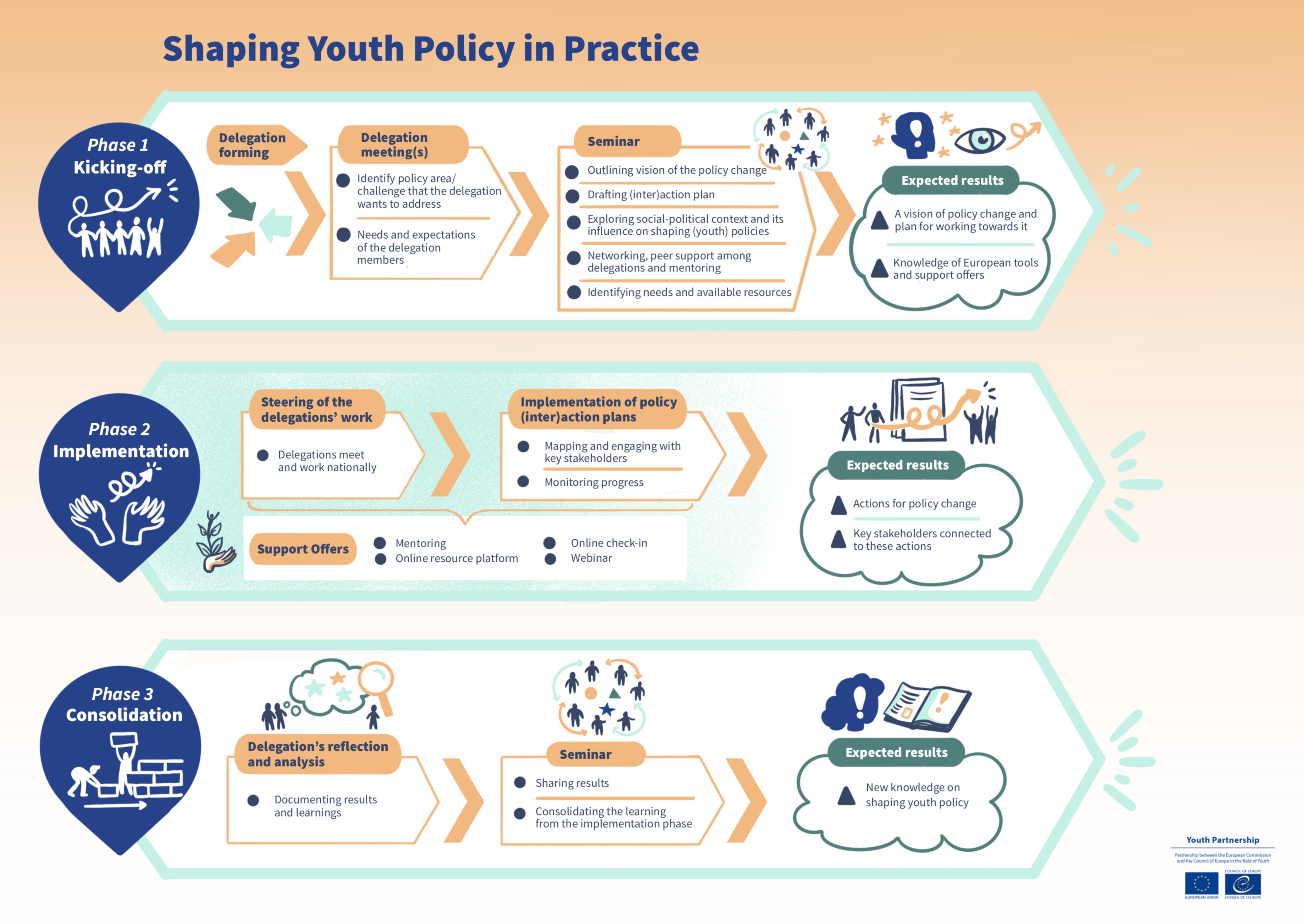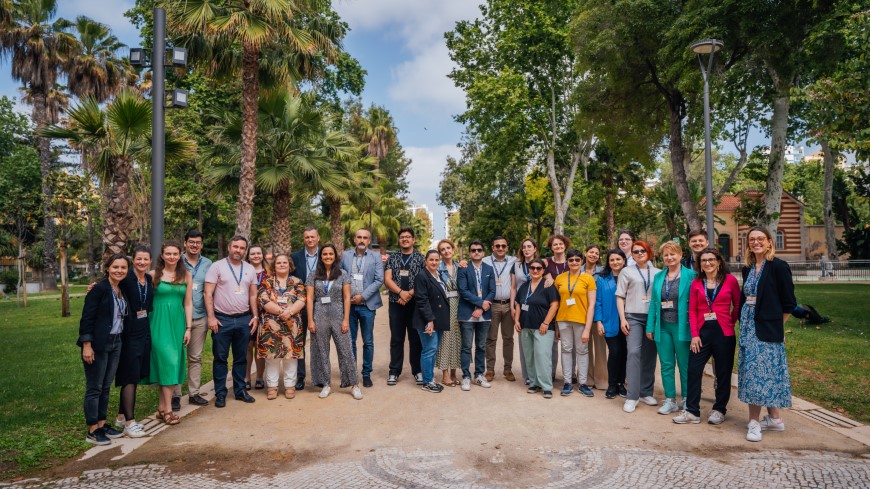Definitions and realities of youth policy vary across countries, within countries, and also over time. Youth policy is a strategy implemented by public authorities with a view to providing young people with opportunities and experiences that support their successful integration into society and enable them to be active and responsible members of their societies, as well as agents of change. Youth policy addresses various and interlinked dimensions in young people’s lives: wellbeing, learning, democratic participation, and inclusion. It can offer opportunities for young people to develop their knowledge, skills and attitudes to find their place in society, to be autonomous, to play a role in civil society and the labour market.
Youth policy is an important topic for international institutions. The Council of Europe promotes youth policies based on human rights and democratic standards. It also promotes youth participation in youth policy. The European Union supports policies that create opportunities for young people. It also highlights the role of youth work and non-formal learning.
In 2023-2024 the EU-Council of Europe Youth Partnership implemented a one-year capacity building project. Participating countries include Armenia, Bosnia and Herzegovina, Hungary, Moldova, Portugal and Ukraine. Cross-sectoral and multi-stakeholder delegations developed national plans and implemented it with guidance from mentors and the facilitators of the project. The delegations met in March 2023 in Chisinau for a residental seminar to kick-off the project. The Youth Partnership organised two webinars, briniging external input for the work of some national delegations and all of them were supported by mentors in their national processes. A consolidation and evaluation seminar will take place on 17-18 April 2024 in Faro, Portugal.

Project objectives:
- Build capacities of youth policy actors to strengthen youth policy based on the know-how and principles promoted by the EU-Council of Europe Youth Partnership and its partner institutions;
- Share and use in practice resources developed by the EU-Council of Europe Youth Partnership, notably the Youth Policy Manual, Youth Policy Essentials, e-library on youth sector evaluation, MOOC on Essentials of Youth Policy and T-kit on participatory youth policy, as well as the learning from previous editions of the Shaping youth policy in practice project;
- Contribute to a culture of co-operation among different actors for supporting youth policies within each participating country;
- Create a space for in-depth peer exchange on youth policy;
- Accompany and build the capacity of national delegations to develop and implement a delegation plan within each country’s national context.

